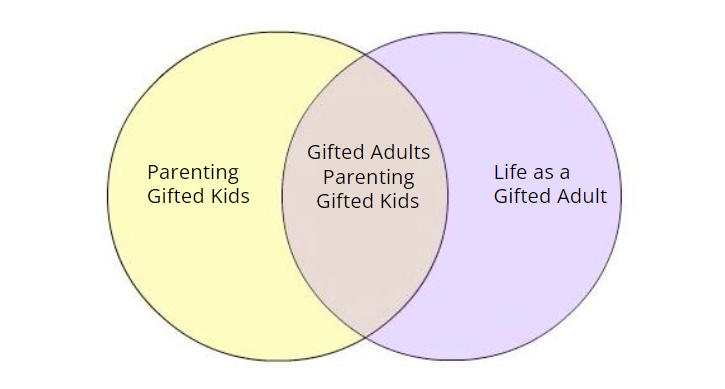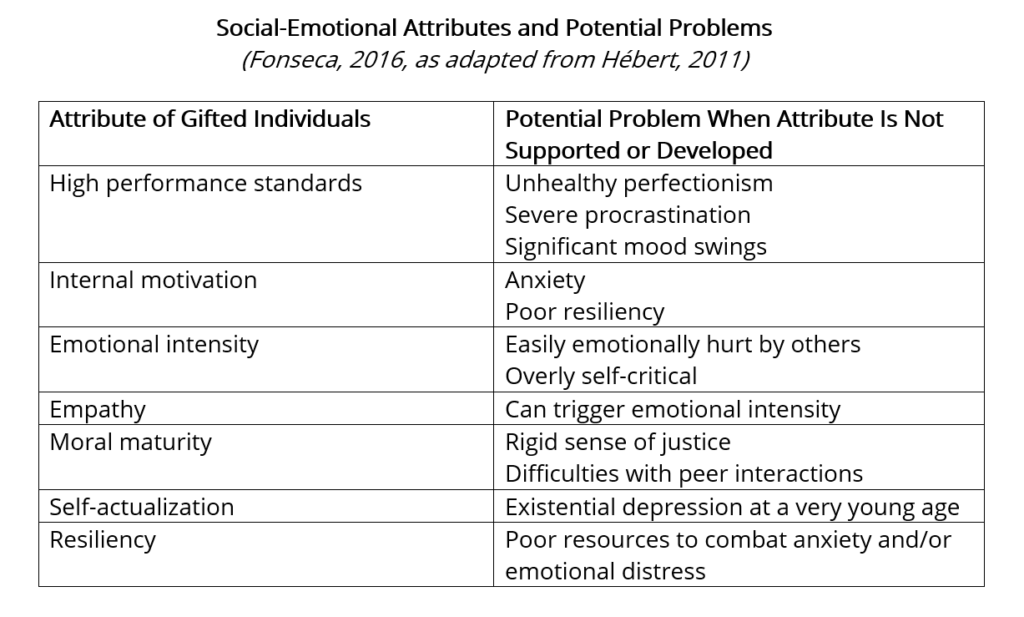
I’ve taken a lengthy hiatus (over a year!) from writing on this blog due to a couple of significant factors:
- I started back at my job full time, and have been swamped with that (exactly like I knew I would be; see my blog post for more on this topic.)
- I continue to deliberate over whether to “go public” with this blog and make it a more visible part of my identity. Each time I think about doing this, I worry about the dilemma of having written numerous detailed posts about parenting my three kids, who deserve to make their own choices about what they share (or not) about themselves. Then I freeze and don’t make a decision.
Well, here I am again. I’m still just as invested in the world of giftedness as ever, and have realized that keeping up with this blog is likely the best way to stay on track with my goals of exploration and community-building. I’ll continue to deliberate about privacy issues, and if I do go public, I will likely simply hide away my entries about my kids in order to resolve that dilemma.
I’ll start this revamp by sharing a presentation I’ve given twice over the past couple of years, called “What About Me? Gifted Parents, Parenting Gifted.” (I’m working on fleshing this out into a longer manuscript.) After briefly introducing myself and my three (anonymized) 2E kids, I share the following triple Venn diagram I’ve created to represent where my most salient interests currently lie (in the middle):

I quickly discuss what we know about parenting gifted kids, as well as the little we understand (even less!) about supporting gifted adults – and then, I dive into the intersection of both. The bulk of my presentation is taken up with a list of ten hints or tips that I hope will resonate with participants. Here – very briefly – they are.
Tip 1: Acknowledge your own giftedness in whatever way is comfortable. Acknowledgement is often the first step in any journey of self-awareness and growth. I reassure participants that there are numerous terms they can use to describe their own gifted selves, depending on their comfort level and preference; these include but are not limited to gifted adult, former (perhaps undiagnosed) gifted kid, lifelong learner, 2E adult, bright and quirky adult, multi-potentialite, rainforest-minded person… (I’m sure there are other terms that might be used, too – we need to stay creative and affirmative in our collective brainstorming!)
Tip 2: Recognize what you didn’t get as a gifted child (while remembering that your own kids may likely not need the same things). Next, I ask participants to reflect on this prompt: How did things go for you as a gifted kid? Did you experience trauma of any kind stemming from your giftedness? How might this be impacting the way you respond to your child and their giftedness? I show participants the following chart of social-emotional attributes and potential problems related to giftedness, reminding them that the “gifts” of neurodiversity very often come with associated challenges if insufficiently supported.

Tip 3: Explore how you and your kids may be “differently gifted”. I remind participants that despite certain commonalities, gifted experiences are actually highly varied, and we shouldn’t assume our kids will struggle (or succeed) in the same ways we did. I ask them to reflect on what their own “gifted profile” is, as well as that of their child – clarifying that when I use the term “gifted profile” I’m referring to any twice-exceptionalities (Learning Disabilities, anxiety, ADHD, Autism, etc.); levels of giftedness (mildly, moderately, highly, profoundly); and overall personality elements (including different overexcitabilities and “five factor” personality traits).
Tip 4: Find a peer support group (or simply a like-minded friend or two). We – that is, gifted adults parenting gifted kids – need friends and conversation partners, too, just like our kids! This sounds almost too obvious to state, and yet many things change when we become parents, so reminders are useful. Joining a SENG Model Parent Group was life-altering (in a very good way!) for me, and I highly recommend this as a next step for participants if they haven’t already taken part in one.
Tip 5: Don’t allow others to define who you “should” be as a parent. No matter how many books continue to be published (and they will never stop!), there really is no “one way” to be an effective parent for your gifted child. You know your own kid(s) best, and should be encouraged to pick and choose wisely from all the (healthy) ideas that are out there. I remind participants that taking care of their own gifted needs should be part of their overall parenting plan, too: for some gifted parents, this means continuing your career in some fashion; for others, it means putting a halt on their career and/or shifting gears. These are all challenging choices, deserving of affirmation and support.
Tip 6: View parenting as an opportunity for ongoing learning. Gifted adults often look for new opportunities to learn and explore – so I remind participants that parenting is an ideal venue for a growth mindset! Doing deep dives into new topics can be overwhelming, but also a nerdy blast (I especially recommend Debbie Reber’s Tilt Parenting podcast). As (age) appropriate, I recommend to participants that they talk out loud with their kids about their parenting challenges, to openly model growth and learning. What choices are you facing? How do you problem solve? The more you can involve your kids in these discussions, the more committed they will be.
Tip 7: Enjoy your child’s intellect and humor. I love this hint in particular, because in the midst of all the challenges, we forget to simply have fun with our kids. They often have amazing insights, and awesomely quirky (or at least wonderfully corny) word play to impart. In our household, we make it a nightly ritual to take turns sharing jokes, facts, and/or highs-and-lows from the day – a process which often turns into a free-for-all discussion of a random topic that leaves us all a little bit more informed and energized.
Tip 8: Make at least a little time for your personal passions. Try to let go of mantras like “I’m too old”, “I’m too busy”, and “I need to focus exclusively on my kids’ skills, not mine.” By engaging in your own passions to whatever extent you can (even 5 minutes a day), you are modeling lifelong learning and personal growth for your kids – and this is crucial.
Tip 9: Extend the same care to yourself as you do for your kids. You know that your gifted child needs compassion, support, and sensory attention. Are you extending that to yourself? Talking out loud about what you need to be comfortable and effective throughout the day can help to normalize this for your child, too. My kids know I need to stretch, lie down, look out the window, and be by myself periodically to get grounded – and they have their own lists of self-regulation hacks.
Tip 10: Finally, don’t forget the little things. I added this last tip during my second go-around with the presentation, when I realized that getting too lost in the clouds of Big Ideas and Lofty Goals can be detrimental to daily happiness for gifted folks, both personally and as parents. We can (and should – if we want to!) stop to recognize the small wins and joys, which, taken together, ultimately comprise a life worth living (Linehan, 2020).
This last hint relates to the broader topic of spiritual well-being for gifted individuals. After a life spent recovering from spiritual/religious trauma (a topic for another blog post), I’m slowly coming back to my own sense of what’s comfortable and helpful in this sphere for my own life journey – and I’ll be sharing more about that in time.
Copyright © 2023 by HalfoftheTruth.org. Please feel free to share with attribution.
References:
Fonseca, C. (2016). Emotional intensity in gifted students: Helping kids cope with explosive feelings (2nd Edition). Prufrock Press Inc.
Linehan, M. M. (2020). Building a life worth living: A memoir. Random House Publishers.

